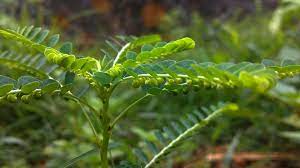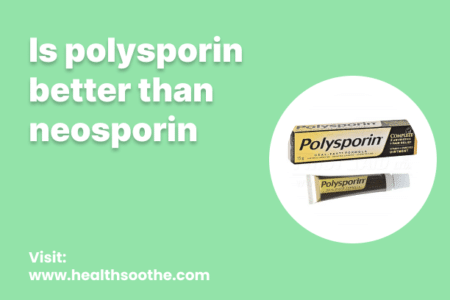Many wild plants possess medical and health benefits and one of such is Phyllanthus amarus, locally called Eyin Olobe in the Southwestern part of Nigeria. It is also called Ngwu by the Igbos, Mache Dagooyo by the Hausas, and Oyomokeso Amanke Edem in Efik. It is commonly used to relieve pain and inflammation in traditional medicine and is also known to help treat stomach ulcers.
Researches on the constituents of ewe eyin olobe; to ascertain how it helps in treating kidney stones, diarrhea, and many urinogenital infections, among others. These researches have found that chemicals, such as flavonoids, polyphenols, alkaloids help in their medicinal effects.
In this article, we will talk about the health benefits of ewe eyin olobe, the possible side effects that come with its use, and how ewe eyin olobe should be prepared and used.
[ninja_tables id=”44679″]
What is Ewe Eyin Olobe
Eyin Olobe is a plant that grows in the wild and is commonly found in Africa, the Americas, South East Asia, China, and India. It is a leafy plant that is popularly used for the treatment of kidney stones, diarrhea, gonorrhea, diabetes, among others, in Ayurvedic medicine.
The plant grows to about 60 cm but its most useful part is its leaves. It is commonly called carry me seed and gale of the wind in the English-speaking countries. However, in Yoruba, it is called Eyin Olobe.
According to some research, the plant has some pharmacological properties which make it useful in treating ailments that are associated with inflammation, formation of stones, as in gall stones and kidney stones, and calm an upset stomach. It also possesses antibacterial and hepatoprotective properties.
- Related reading: Ewe Abamoda – Its Usefulness and Properties.
Nutrient Composition of Ewe Eyin Olobe
Like every other living organism, there are nutrients, that may be of benefit to its consumers, in the Eyin Olobe plant. These nutrients are majorly found in the leaves and stems of the plants. Some of the nutrients include:
| Nutrient | Composition |
| Carbohydrates | 65.28% |
| Protein | 10.50% |
| Fats | 6.07% |
| Fiber | 6.95% |
| Copper | 6.25 ppm |
| Iron | 172.73 ppm |
| Manganese | 35.75 ppm |
| Zinc | 61.75 ppm |
| Sodium | 78.50 ppm |
| Phosphorus | 96.25 ppm |
| Calcium | 3467.00 ppm |
| Magnesium | 327.00 ppm |
| Chromium | 15.25 ppm |
Chemical Compounds in Ewe Eyin Olobe that have Medicinal Properties
Eyin Olobe leaves and stems contain more than nutrients. Although its nutrient composition is impressive, it also contains phytochemicals that make some beneficial contributions to the health of its consumers. These phytochemicals range from Alkaloids to Saponins, tannins, flavonoids, steroids, and glycosides.
Alkaloids are naturally occurring chemicals in plants that have pharmacological importance. They are important antimalaria, antiarrhythmic, analgesic, antiasthma, antihyperglycemic, and antibacterial, among other uses. Their presence in eyin olobe attributes them with these same properties, making them good medicinal plants.
Flavonoids are antioxidants. They are plant metabolites that are found in many fruits and vegetables, which make them effective in removing toxins from cells of the body. They help the human body stand against viral infections, act as anti-allergic materials, and as anti-inflammatory materials, by boosting the immune system. They are readily soluble in water and can be consumed in large quantities by humans.
Eyin Olobe is characteristically bitter and this attribute is possible due to the presence of saponins. They also give it the characteristic foamy appearance when agitated in water, especially when pounded into a paste. They are said to have antimalaria properties.
Health benefits of Ewe Eyin Olobe
All the phytochemicals that are contained in Phyllanthus amarus have one benefit or the other to the body, even though some are detrimental to the body when taken in excess. Some of the health benefits that can be derived from using ewe eyin olobe include:
Blood Sugar Regulation
According to research carried out on mice, it is concluded that Phyllanthus amarus has the potential of being a hypoglycemic drug, suitable for human use, as it significantly reduces the amount of sugar in the blood. This makes it a potential option for treating diabetes mellitus.

Treatment of Bacterial Infection
In a test [mfn]https://www.researchgate.net/publication/51702383_Phyllanthus_amarus_Ethnomedicinal_uses_phytochemistry_and_pharmacology_A_review[/mfn] of eyin olobe extracts against bacteria, such as E. coli, Pseudomonas aeriginosa, salmonella typhi, Candida albicans, and Staphylococcus aerus, it effectively killed all microorganisms in the test.
This means that eyin olobe is an effective medication against vaginal infections such as candidiasis and bacterial vaginosis. It will also treat most urinary tract infections.
Treatment of Joint Pain and Arthritis
The phytochemicals in eyin olobe have anti-inflammatory and analgesic properties. This makes the plant suitable for treating pains of different kinds and reduce swelling in different parts of the body.
Improved Liver function and health
The antioxidative function that the liver does, by removing toxins from the body is made easier by the use of eyin olobe. It helps to provide antioxidants, which helps the liver significantly reduce the number of toxins it has to remove from the body.
It also helps to remove uric acid and reduces the amount of cholesterol in the body, increasing the ease of work of the liver.
Effective against Viral Infections
Although Phyllanthus amarus is effective against bacteria, it is also commonly used to treat flu and cough, due to its anti-viral property. It effectively reduced the population of HBV antigen in test animals, making it a possible antiviral medication for humans.
Boosts the Immune System
With the array of nutrients, such as zinc, manganese, and iron, coupled with the phytochemicals in eyin olobe, it helps to improve the strength of the immune system, making it able to withstand the attack from foreign materials, that may be a threat to the well-being of an individual.
Prevents anemia
The high level of ammonia in the eyin olobe is an indicator of its use as a medication to treat anemia. It also aids in mental development and the transport of oxygen throughout the body.
Side Effects of Ewe Eyin Olobe
As there are not enough researches on eyin olobe currently, there are no concrete side effects attributed to the use of eyin olobe. However, there is concern about its effect on diabetic patients. It is, therefore, better to consult your doctor before you use this local medicine, especially if you are diabetic.
How to Use Ewe Eyin Olobe
Ewe eyin olobe has no formal dosage. However, it is advised that you strain about 20 cl of the decoction into a glass, dilute it with water, or any juice, if you wish, and drink it twice a day.
Conclusion
Plants hold answers to the cure of numerous diseases we are currently battling. However, there are too many plants to ascertain the medical and health benefits they all have as fast as we hope. However, ewe eyin olobe, Phyllanthus amarus, is one plant that has been undergoing research and has, so far, yielded satisfactory medical and health benefits to humans.






2 Comments
Thank you, Dr. Gbenga Oye. We appreciate your feedback.
This article is sincerely well articulated, not only in expression but in the unveiling of practical realities. I use the herb often in Customised medication